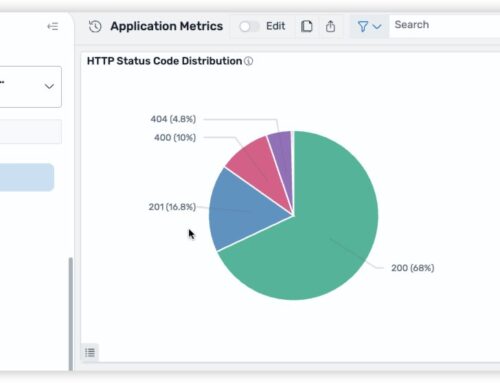Chinese People Continue Buying More Bitcoin, Despite Strict Bans
March 31, 2025
Bitcoin was “banned” in China in 2021 – so how is it that there’s still demand for Bitcoin in China these days? And how are these markets for Bitcoin affecting Bitcoin prices?
A thriving “gray area” marketplace for Chinese mainlanders
There is continued demand for Bitcoin from Chinese Mainlanders (Chinese people outside Hong Kong and Macau). To understand this more deeply, you must understand the nature of the bans in the Chinese Bitcoin context.
While Hong Kong offers futures and spot Bitcoin ETFs, mainlanders are forbidden from investing in these instruments – part of a general trend towards an exchange ban and the ban of public CNY-BTC pairings that make it challenging to track precisely how much Bitcoin is transacted.
However, over-the-counter trade (“OTC”) allows people to skirt these restrictions. Sometimes, OTC desks and services are more like private banks – and others are collections of merchants willing to take the legal risk of selling Tether and Bitcoin for Yuan.
Chainanalysis has previous relationships with some of the large OTC desks. Through this data, an increase in trading demand for Bitcoin is observed. As Chainanalysis’s media team has commented: “OTC services provide over-the-counter sales for people within China and across the region. Although some OTCs operate distinct on-chain infrastructure, many are nested businesses within other larger exchanges, where they can leverage existing infrastructure and liquidity to support the trading activity of their customers.
The use of OTC channels in China reflects one of two things – first, the ban is loosely enforced, or how challenging it is to fully prohibit crypto activity.”
There are also large desks that trade in Tether, a US dollar backed stablecoin – which Chinese people use in large quantities. While there are rumors that OTC trade involves physical peer-to-peer trade, most people use exchanges, especially those with China-based roots. There, anything from putting in an address outside of the Mainland (such as a Hong Kong address) to using OTC services allows people to buy Bitcoin/Tether for local Yuan wires.
There are also active signs of cryptocurrency trade all over the Internet, including the Western Internet, with, for example, active X rooms in Mandarin openly discussing the trade of different tokens. Bitcoin Asia 2024 reported a large contingent of mainland Chinese attendees.
In an interview with Nino Feng, a former exchange executive from China, she relayed that most people she knew were buying Bitcoin from over-the-counter services that operated with major exchanges as a sort of collection of informal merchants that paid an escrow fee to be listed on a major exchange to sell Bitcoin and Tether at a spread.
They would ask for money to be wired to local Chinese bank accounts (usually registered with a relatively unknown rural bank) – and there were many more desks that sold Tether rather than Bitcoin (since the spread on USDT/RMB is lower than BTC/RMB). Nino also indicated that many people take their Tether and trade down on second-tier exchanges with more crypto trading pairs, which was confirmed anecdotally by listening to X rooms filled with Chinese traders livestreaming their activity.
The government buying/mining Bitcoin
An outside possibility is the Chinese government getting involved with buying and/or mining Bitcoin – though that’s unlikely to happen systematically. However, Chinese officials and professors have cautioned against China’s ban on cryptocurrencies as an unwise decision, along with the mining ban.
While it seems unlikely that the Chinese government will adopt Bitcoin rather than its fascination with “blockchain”, it also seems doubtful that it will further restrict Bitcoin more than it already is in the Mainland – with Chinese courts consistently upholding its use as property. It may also be the case that the Chinese party-state might hold onto the rumored 15,000 Bitcoin it still might hold from PlusToken seizures.
The future – e-CNY, USDT, and Bitcoin in Hong Kong
With the e-CNY, China’s central bank digital currency, progressing in the pilot stage but stalling out when it comes to momentum (especially among the average Chinese user – who still vastly prefers to keep with WeChat Pay and Alipay for the moment), the future of Bitcoin and China looks like an important bridge to explore – one which will provide insight into Bitcoin’s future as well as its price level.
With people being arrested for trading in Tether and demand for altcoin trading, the story is mixed with Bitcoin adoption. Yet this need to drive funds outside China may continue despite short-term respite. Tether is also an interesting geopolitical trendmaker – the Secretary of Commerce, responsible for setting Trump’s tariff strategy, is Tether’s primary Treasuries dealer. Every Chinese person who buys USDT essentially helps support buying Treasury reserves – even if the Chinese government itself is trying to move away from Treasury debt.
As Bitcoin in Hong Kong becomes more regulated and the over-the-counter trading desks become the default way for most people to trade, Hong Kong can serve as a bridge between China and Bitcoin. Yet it’s clear that Hong Kong is trying to position itself as a Web3 hub – and while these steps would have been something the central authorities would step out and veto if it were genuinely concerning, the position of Hong Kong and the Chinese Mainland doesn’t allow for the easy conclusion that Hong Kong is China’s experimental backdrop.
The future of Bitcoin is still tied up with China. Chinese companies manufacture mining chips shipped to the United States, which is caught up in import restrictions. China’s people continue buying Bitcoin and Tether despite bans, leading to dramatic geopolitical consequences – and a hidden yet continued demand factor for Bitcoin.
Search
RECENT PRESS RELEASES
Related Post




